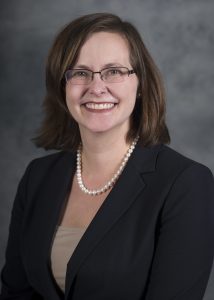
You've written a lot on the economic history of professional sports. To me, this seems like a dream job. Am I wrong?
I tell my students that they should try to choose a topic they are keenly interested in. As a child, I was interested in the Civil War (a National Geographic article on the centennial of Gettysburg and Vicksburg sparked my interest), sports (my brother was a star on the high school state championship basketball team), and television (my sister and I watched for hours). To do history, you must be prepared to sit in front of microfilm machines; handle musty, deteriorating manuscripts; and spend time in the stacks of various libraries. On the other hand, you meet pretty cool people--the library archivists and reference people.
I rather doubt that most young economists enjoy their research as much as I do, since they are often working on topics chosen by their dissertation advisors, and they are too busy trying to demonstrate their mathematical abilities.
Economists, though, should view themselves as storytellers. There's a lot of stories in revolving around the Civil War, baseball, and television.
You studied under a Nobel Prize winner in graduate school, and since you were at the University of Chicago, I guess you may have occasionally run into other winners. Was there anything especially interesting or surprising you observed about such prominent figures in the field? Did they have anything in common, apart from being very smart?
Well, I was fortunate in that Robert W. Fogel won his Nobel Prize a year before I completed my dissertation. One of the first things he told me was that he would make sure to make time to work with on the final stages of my dissertation. Winning a Nobel Prize creates a lot of distractions, although most of the U-Chicago Nobel Prize winners went back to work after the interviews; some rushed off to teach after the initial hoopla. Fogel mentioned that what set the Nobel Prize winners apart wasn't their smarts; being smart was simply a pre-requisite, and there were plenty of smart people around. What set the Nobel Prize winners apart was their dedication and their passion for learning and thinking. The graduate students heard a possibly apocryphal story that one of the Nobel Prize winners once said he liked coming into his office on Christmas because, "It was the one day of the year that his phone didn't ring."
The funny thing about being in a department with multiple Nobel Prize winners is that it is no big deal among them. Unless they become polemicists for the New York Times, most Nobel Prize-winning economists are anonymous. I once walked past the Frank Lloyd Wright Robie House in Hyde Park (U-Chicago campus) and saw Gary Becker, another Nobel Prize winner, walking up the street. A tour bus had just deposited a crowd of gawkers. None of them paid Becker--arguably one of the most influential economists of the second half of the twentieth century--any mind. I felt tempted to yell, "Look, there goes a Nobel Prize winner." Of course, out of respect for Professor Becker, I did not.
What's the worst advice you ever got as you were thinking about becoming an economist?
People didn't advise me with regard to becoming an economist. My Dad, who had a college degree, used to make fun of PhDs, but he quit joking about them, when I went off to graduate school. My high school accounting teacher was always sorry that I didn't become a CPA. In retrospect, my comparative advantage probably was in accounting, but I enjoy being an economist. The joke, "An economist is someone lacking the personality to be an accountant," is pretty funny, as it takes a swipe at both professions.
I suppose it would have been nice for a professor to give us some punchlines to the ubiquitous query, "What's the economy going to do?" Strangers often ask me that question, when they first meet me. I honestly have no idea what the economy is going to do; I don't study that. I have fancy theories and terminology to toss around, but I have little clue. I think people don't believe me, when I tell them I don't know. They seem to think I'm keeping potentially lucrative information secret. If you look at most economists' investment portfolios, I doubt you'd see a significant advantage over the general, college-educated crowd.









